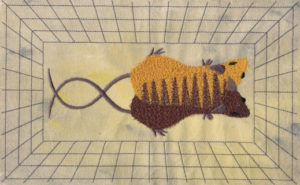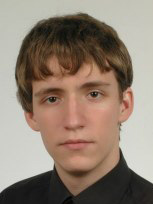To promote Developmental Biology, we should have our elevator pitches ready at all times – whenever there is an opportunity to talk about our discipline – be it to the public, students, fellow scientists or policy makers. We have no made a first start published on the BSDB website and The Node. This is a first attempt at providing a concise rationale and ideas that can be woven into conversations about our science. We are certain that the arguments presented can still be improved and complemented and expanded into the fields of evolutionary biology and plant sciences. We would therefore like to invite you to send in your ideas, potential corrections and suggestions for improvement, additions, new arguments and/or potential links that will further strengthen the message we want to convey. Please, forward your ideas to Andreas.Prokop@manchester.ac.uk. This initiative is only the first step of a collaborative advocacy campaign, and we’ll inform about next steps on The Node and on the BSDB site.
All posts by comms
Meeting Report: BSDB Autumn Meeting 2016
Under the sponsorship of the Anne McLaren Memorial Trust Fund and The Company of Biologists, the BSDB Autumn meeting organised by Jenny Nichols and Tristan Rodriguez took place in the Pollock Halls at the University of Edinburgh. The topic this year was: ‘Chimaeras and their use in studying developmental processes and disease models’. Chimaeras are made of cells from two or more different organisms of the same or different species. Since their first conception, chimaeras have been an essential tool to dissect cellular potential and are used to address a large number of questions in developmental biology using a variety of different model organisms, from plants to vertebrates. Read the full meeting report.
Two developmental biologists named in the Queen’s New Year’s Honours list
The Queen’s New Year’s Honours List includes a damehood for Ottoline Leyser, head of the Sainsbury Laboratory in Cambridge and chair of the BSDB, and a knighthoods for James Smith, director of research at the Francis Crick Institute. We would like to congratulate them on their great achievement!
Looking back at the 2016 BSDB Autumn Meeting
The 2016 BSDB Autumn meeting, organised by Jenny Nichols and Tristan Rodriguez under the topic of ‘chimaeras and their use in studying developmental processes and disease models’, took place on 28-30 August in The Pollock Halls at the University of Edinburgh. It was sponsored by the Anne McLaren Memorial Trust Fund and The Company of Biologists.
The five sessions on (1) Lineage tracing and Potency, (2) Signalling Mechanisms, (3) Regenerative Medicine and (4) Human Development, (5) Disease Models and Gene Function, saw a wide range of applications of chimaeras discussed in various model systems, presented as a mixture of traditional uses of chimaeras, recent innovations within this historical context and a broad range of other ideas and approaches – incorporating both the weird and the wonderful! A detailed meeting report will follow, and the speaker list can be viewed here.

Chimaeras are made of cells from two or more different organisms of the same or different species. Since their first conception, chimaeras have been an essential tool to dissect cellular potential and are used to address a large number of questions in developmental biology using a variety of different model organisms, from plants to vertebrates. But they have also always been an inspiration for story tellers and other artists. It was therefore delightful to see artists exhibit on this topic on the conference. These artists were Mia Buehr, who showed computer-generated embroidery with developmental biology themes, such as chick embryos, early mouse embryos and chimaeras (LINK1, LINK2), and the jeweller Aurora Lombardo (LINK).
 Finally, the Autum Meeting hosted the inaugural Dennis Summerbell Lecture which was given by Iwo Kucinski who carried out his work in Eugenia Piddin’s laboratory at the Gurdon Institute. Iwo’s lecture was entitled “The molecular signature of the loser cell status reveals key pathways regulating cell competition” (for more detail see here).
Finally, the Autum Meeting hosted the inaugural Dennis Summerbell Lecture which was given by Iwo Kucinski who carried out his work in Eugenia Piddin’s laboratory at the Gurdon Institute. Iwo’s lecture was entitled “The molecular signature of the loser cell status reveals key pathways regulating cell competition” (for more detail see here).
Overall, the meeting was a great success, paving the way towards the big BSCB/BSDB/Genetics Society Joint Spring Meeting (2-5 April 2017), for which registration is now open (LINK).
BSDB award nomination deadlines
1) Following a generous donation, the BSDB has instituted the Dennis Summerbell Lecture, to be delivered at its annual Autumn Meeting by a junior researcher at either PhD or Post-doctoral level. For more information, please read here. Applicants should have a maximum of 10 years research experience and should not be a principal investigator. To be considered for this award, please send a 1 page CV, a paragraph from your PI in support of your application and an abstract for your presentation to Tristan Rodriguez , one of the meeting organisers; tristan.rodriguez@imperial.ac.uk, by 10th July.
2) 2017 BSDB Waddington Medal. The deadline was June 10, 2016 to put forward names of potential nominees. BSDB secretary will contact nominators to ask for full nominations to be sent in by Wednesday 29th of June.
3) 2017 Cheryll Tickle Medal. The medal will be awarded to a mid-career, female scientist for her outstanding achievements in the field of Developmental Biology. Nominees should have started their own research group in the UK within the last 15 years, with allowances for career breaks. Nominees should have made significant contributions to UK Developmental Biology and stand out as a role model for early career female researchers.Formal nominations should be made to the BSDB Secretary (secretary@bsdb.org) by 1st of July.
